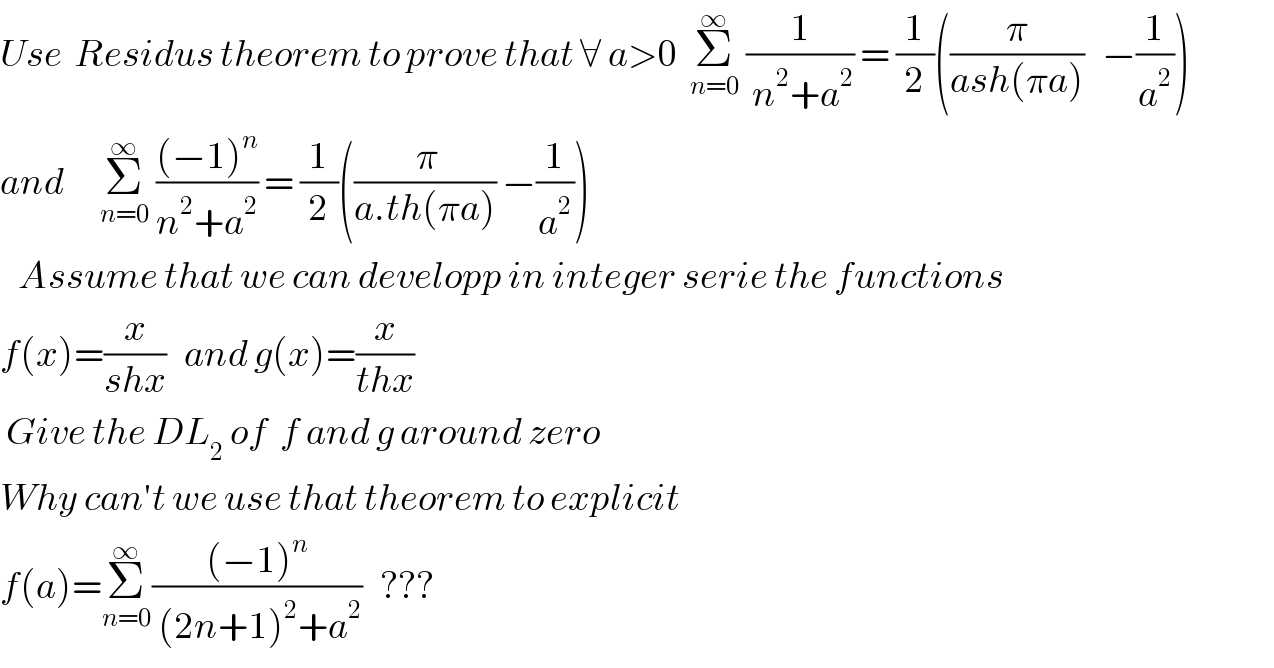
Question Number 69236 by ~ À ® @ 237 ~ last updated on 21/Sep/19

$${Use}\:\:{Residus}\:{theorem}\:{to}\:{prove}\:{that}\:\forall\:{a}>\mathrm{0}\:\:\underset{{n}=\mathrm{0}} {\overset{\infty} {\sum}}\:\frac{\mathrm{1}}{\:{n}^{\mathrm{2}} +{a}^{\mathrm{2}} }\:=\:\frac{\mathrm{1}}{\mathrm{2}}\left(\frac{\pi}{{ash}\left(\pi{a}\right)}\:\:\:−\frac{\mathrm{1}}{{a}^{\mathrm{2}} }\right) \\ $$ $${and}\:\:\:\:\:\:\underset{{n}=\mathrm{0}} {\overset{\infty} {\sum}}\:\frac{\left(−\mathrm{1}\right)^{{n}} }{{n}^{\mathrm{2}} +{a}^{\mathrm{2}} }\:=\:\frac{\mathrm{1}}{\mathrm{2}}\left(\frac{\:\pi}{{a}.{th}\left(\pi{a}\right)}\:−\frac{\mathrm{1}}{{a}^{\mathrm{2}} }\right) \\ $$ $$\:\:\:{Assume}\:{that}\:{we}\:{can}\:{developp}\:{in}\:{integer}\:{serie}\:{the}\:{functions} \\ $$ $${f}\left({x}\right)=\frac{{x}}{{shx}}\:\:\:{and}\:{g}\left({x}\right)=\frac{{x}}{{thx}}\: \\ $$ $$\:{Give}\:{the}\:{DL}_{\mathrm{2}} \:{of}\:\:{f}\:{and}\:{g}\:{around}\:{zero}\: \\ $$ $${Why}\:{can}'{t}\:{we}\:{use}\:{that}\:{theorem}\:{to}\:{explicit} \\ $$ $${f}\left({a}\right)=\underset{{n}=\mathrm{0}} {\overset{\infty} {\sum}}\frac{\left(−\mathrm{1}\right)^{{n}} }{\:\left(\mathrm{2}{n}+\mathrm{1}\right)^{\mathrm{2}} +{a}^{\mathrm{2}} }\:\:\:??? \\ $$
